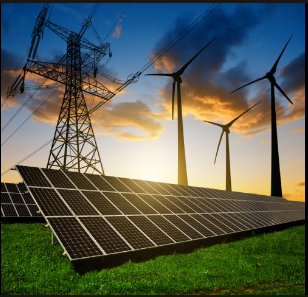Investment in clean energy in developing economies needs to rise seven-fold by the end of the decade, the International Energy Agency has warned, calling for “urgent action” to mobilise cash. Less than a fifth of the roughly $1.7tn of investment expected to go into clean energy this year is set to be spent in emerging and developing economies excluding China, according to estimates by the group. The sum will need to rise from about $260bn this year to $1.4tn-$1.9tn per year by the early 2030s in order to hit climate goals and meet energy demand, the IEA said, but there is rising competition from richer nations. “Today’s energy world is moving fast, but there is a major risk of many countries around the world being left behind,” warned Fatih Birol, executive director of the IEA.
His comments came as the IEA published a report on Wednesday arguing that about 60 per cent of the required investment will need to come from the private sector — but that investors are being put off by the higher cost of capital reflecting “real and perceived risks”. “For the moment, the cost of capital for a typical utility-scale solar project can be two or three times higher in key emerging economies than in advanced economies or China,” the report said. Policies designed to attract investment to Europe and the US are helping boost innovation but also “making it more challenging” for emerging markets to compete for private capital, the IEA added. Recommended InterviewIndian business & finance India’s power minister accuses west of hypocrisy over energy transition Birol told the Financial Times he hoped the Biden administration’s Inflation Reduction Act, which includes $369bn in subsidies to boost clean energy in the US, would prove a positive global stimulus overall. “I very much hope that this will not be a burden for other countries around the world and there will be some flexible mechanisms, providing incentives for others.”
He noted clean energy investment in developing countries was “almost flat” since the Paris Agreement in 2015, which committed countries to limit global warming to 1.5C above pre-industrial levels. “It is not enough. For me, this is the faultline of reaching our energy and climate goals.” New green bonds, voluntary carbon credits and better data reflecting the real risks and returns of investing in emerging markets can all help push money in their direction, the IEA report said. It also called for reforms on planning and regulation to help “steer investment decisions towards cleaner and more efficient technologies”. Larger projects need to be developed given that many investors “don’t want to invest $10mn here or $20mn here — they want billions to be able to go to their board”, said Makhtar Diop, managing director of the International Finance Corporation. The IEA said that action aimed at boosting investment could prove to be a “huge opportunity” for growth and employment, which would be “pivotal . . . to the world’s energy and climate future”.

